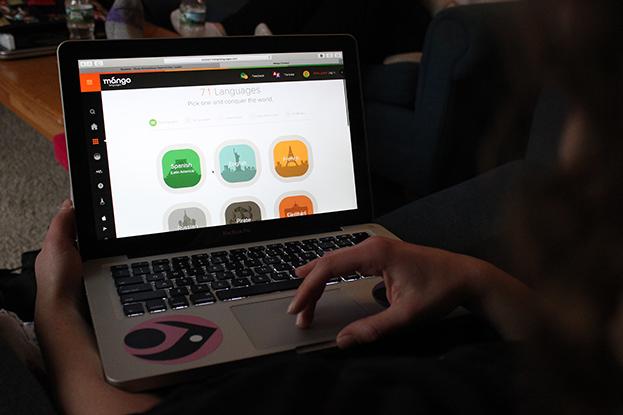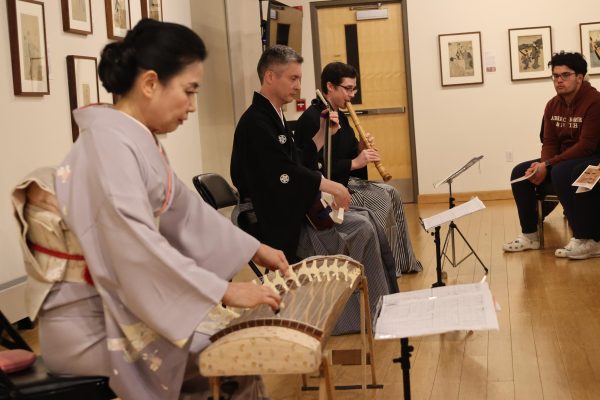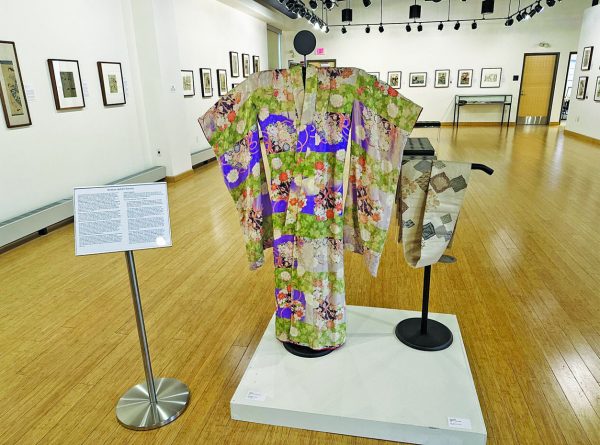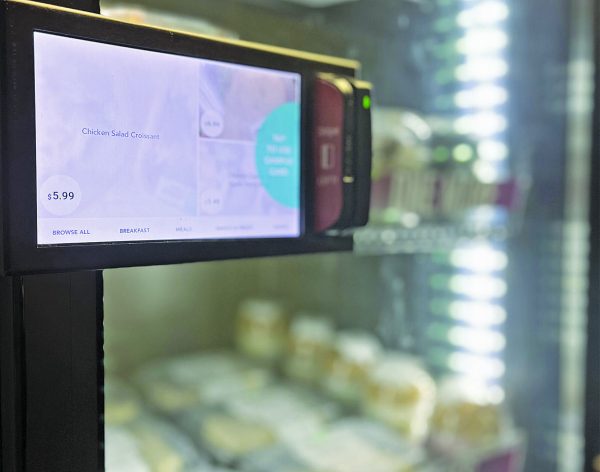Free Language Learning Software Unused
A student uses her laptop to access Mango, the free language-learning software available from the library.
March 2, 2016
Students are not using Mango, the free language-learning software available in the library.
Students can use Mango to learn over 71 languages, and even watch foreign films. The program can be accessed on the library database or on a mobile app that can be purchased through the app store. All one has to do is go to the library database list and look for Mango. The library pays for the program so students can have free accounts.
“Mango is very easy to use,” said Lisa Galico, head of reference and outreach in the Mary Kintz Bevevino Library.
The program has many user-friendly features to aid language learners.
“You can work at your own pace. You can go back and review as often as you like, and there are even features where you can speak into the microphone. This online program will tell you if your annunciation is correct or not. It also gives you the phonetic spelling, so if you are familiar with phonics it is pretty easy to use,” said Galico.
Library officials suspect that students are either unaware or unwilling to participate because they do not see the benefits of language acquisition to their academic career.
“We do not provide an incentive for it because it is not for credit. It is something you do on your own for personal enrichment. Maybe if it was for a grade students would do it, but it is just something we offer. It is really up to the students to take the initiative to do it,” Galico said.
Many students said they didn’t know the program is available, but they would have used it if they had known.
“I want to travel, but don’t want go to a country and be unable to communicate. But programs are so expensive,” said junior biology major Samantha Weissberg.
Other students were aware of the program but chose other software because of personal preference.
“I was aware of Mango, but I personally use the app Duolingo to continue learning German,” said junior English and business administration major Christine Zopf. She added that the Duolingo software is also free.
However, Mango should be a boon to students considering studying abroad, said Marguerite Roy, Visiting Professor for the history and government departments.
“Students studying in countries where English is not the primary language would benefit immensely from using this program,” Roy said. “Being able to communicate in the local language allows the student to better understand the culture, customs and people making their experience much more rewarding.”
She said many students are forced to learn the language of their chosen country while they are studying there. Students are provided with only basic communication skills in the country.
“Though students are given basic Italian when they arrive at the Umbra Institute in Perugia, Italy,” Roy said, “it is nice to be able to have some basics even before arriving so that you can communicate more quickly with the local population. It makes the student experience that much richer.”
Jared Pinter, senior English major who spent the fall semester in the study abroad program, felt he would have advantages if he used Mango.
“No one spoke English. I would almost go so far as to say it should be required to try to learn the language if one seeks to study in a country that speaks another language,” he said.
Roy said language acquisition is a benefit to all students, whether or not they study abroad.
“People interested in traveling even for vacation may benefit from using the program prior to their trip to learn some of the basic greetings. It makes a huge difference to people in any culture if they know you are making an effort to speak their language.”
Students who wish to find out more about the Mango language software should contact the library at 570-674-6352, text: 570-213-9577, chat: library.misericordia.edu, or email at [email protected].







